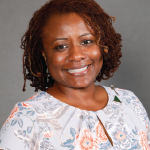TR: What unique skills or experiences do you bring to your new role? How will they help you effectively lead the organization?
Dr. Poole: Knowing an organization’s history—where it’s been and what it’s done—is essential to guiding and leading it forward. I share a long history with the ARP. I have experienced the organization’s changes, supported and participated in many of its past accomplishments and recognize its future potential. I feel fortunate to have been directly involved in all three of its major divisions: the ACR, the ARP and the Rheumatology Research Foundation. All of these experiences, along with my background as an educator and occupational therapist working with people with rheumatic and musculoskeletal diseases, have prepared me to lead the ARP by focusing on its goals and meeting member needs.
TR: What new challenges will the ARP face next year?
Dr. Poole: This is a time of opportunity, not challenges. We understand the need for rheumatic training and must expand and tailor our educational materials and resources to the larger needs of the interprofessional team. Management of people with rheumatic diseases involves more than one discipline because of the complexities of the conditions we deal with. This is our chance to represent and serve the needs of the whole interprofessional team, which is different than organizations that represent one discipline. By adopting a broader focus, we can grow and expand ARP’s membership base to include an even wider variety of healthcare professionals who work with people with rheumatic conditions.
TR: Why do you want to serve as ARP president?
Dr. Poole: One reason I became involved in the organization was because of my interest in scleroderma. At the time, there weren’t many OTs working in this area. But after joining ARP, I discovered there were others like me who specialized in the management of people with scleroderma. Being an ARP member has helped me professionally in terms of networking with healthcare professionals from around the country who treat patients with scleroderma. Serving as president is my way of giving back to the field of rheumatology. I really want to represent the voice of my colleagues and help others similar to how I’ve been helped through networking, educational, mentorship and grant opportunities. I want to provide a clear path for people who want to enter or continue working in the rheumatology field.
TR: Many ACR/ARP members are familiar with Dr. Poole the researcher, academic and occupational therapist, but haven’t met Janet Poole, the individual. What can you tell us about your personal side?



